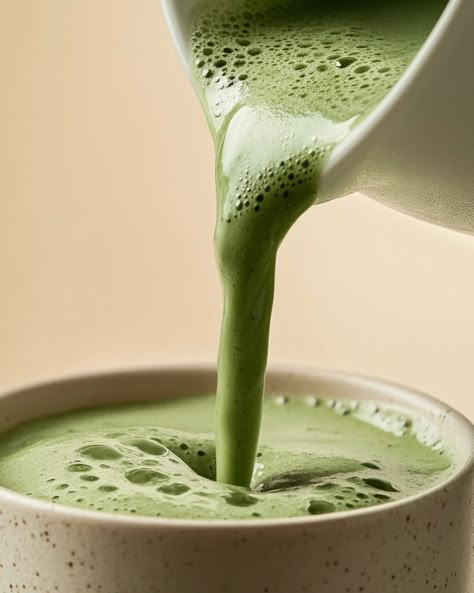
The Matcha Revolution: Discover the Benefits and Know What to Buy
Matcha. It's more than just a trendy green drink; it's a cultural phenomenon steeped in tradition and backed by science. The finely ground powder of specially grown green tea leaves has taken the world by storm, captivating palates and promising a wealth of health benefits. But what's behind the hype? Let's delve into the science and discover how to choose the best matcha for your wellness journey.
The Science Behind Matcha's Power
Matcha's vibrant green hue isn't just for show. It's a testament to its rich concentration of chlorophyll and, more importantly, powerful antioxidants called catechins, especially epigallocatechin gallate (EGCG). Unlike traditional green tea, where leaves are steeped and discarded, matcha involves consuming the entire leaf, resulting in a significantly higher intake of these beneficial compounds (1).
-
Antioxidant Powerhouse:
- Matcha has an exceptional antioxidant capacity (2). The catechins in matcha combat oxidative stress, neutralising free radicals that contribute to cellular damage and chronic diseases. This translates to potential protection against conditions like heart disease and certain cancers (2).
-
Cognitive Clarity:
- Matcha's unique combination of caffeine and L-theanine offers a sustained energy boost without the jitters. L-theanine, an amino acid, promotes relaxation while enhancing alertness. L-theanine improves cognitive performance, including attention and memory. This synergy results in a calm, focused state, ideal for productivity and mindfulness (3).
-
Heart Health Support:
- Regular green tea consumption, including matcha, can positively impact cardiovascular health. The catechins in matcha may help lower LDL cholesterol and triglyceride levels, reducing the risk of heart disease (4).
-
Metabolic Boost:
- The catechins in matcha have also shown promise in supporting weight management. They can enhance metabolic rate and increase fat oxidation, aiding in calorie burning when combined with a healthy lifestyle (5).
Choosing the Right Matcha: A Guide
With the surge in matcha's popularity, it's crucial to discern quality from marketing hype. Here's what to look for:
-
Origin:
- Japanese matcha, particularly from Uji and Nishio, is renowned for its superior quality.
-
Grade:
- Ceremonial grade: Made from the youngest leaves, best for traditional tea.
- Culinary grade: Slightly more robust, ideal for lattes and cooking.
-
Colour:
- A vibrant, bright green indicates freshness and high chlorophyll content. Avoid dull or yellowish hues.
-
Packaging:
- Opt for matcha stored in airtight, opaque containers to preserve its quality.
Matcha Recommendations:
Incorporating Matcha into Your Daily Routine
Matcha's versatility makes it easy to integrate into your lifestyle:
- Traditional Preparation: Whisk matcha with hot water (70-80°C) for a frothy, invigorating tea.
- Matcha Lattes: Combine matcha with steamed milk (dairy or plant-based) for a creamy, energising beverage.
- Smoothies and Baking: Add matcha to smoothies, cakes, or pastries for a nutritional boost and unique flavor.
The Matcha Revolution: A Wellness Ritual
Embracing matcha is more than just following a trend; it's about incorporating a centuries-old tradition into your modern life. Whether you seek enhanced focus, improved health, or a moment of mindful serenity, matcha offers a harmonious blend of benefits.
By understanding the science and choosing quality matcha, you can unlock its full potential and embark on a journey of wellness.
References
(1)
(2) Health-enhancing components in matcha tea by Weiss DJ, Anderton CR. (2003)
(3) Effects of L-Theanine on Cognitive Function in Healthy Adults: A Systematic Review by Dietz C, Dekker M. (2017)
(4) Green tea consumption and cardiovascular risk factors by Suzuki-Sugihara N, Sanada K, Oki K, et al. (2016)
(5) Beneficial effects of green tea catechins on obesity and related metabolic diseases by Wolfram S, Raederstorff D, Wang Y, et al. (2006).




